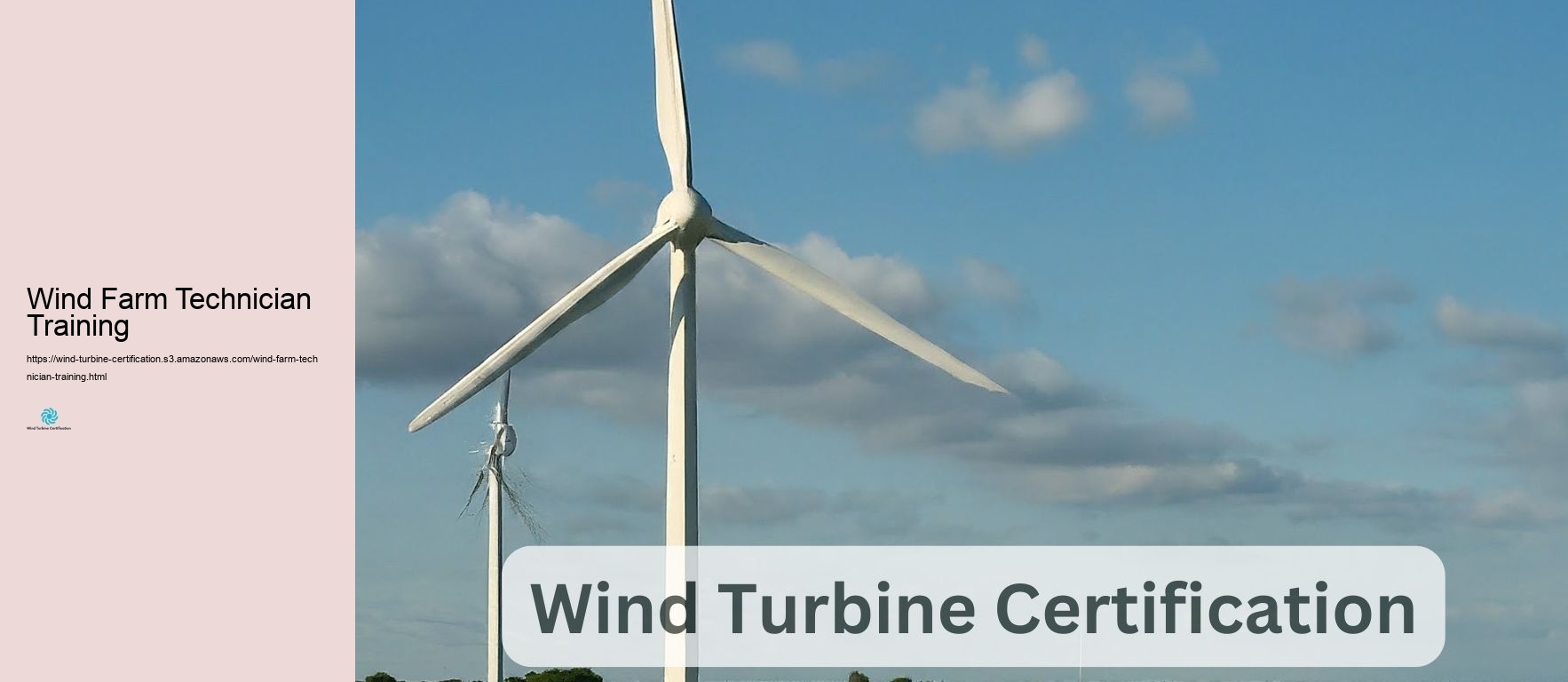

Wind turbine certification is an essential treatment in the wind energy industry that makes certain wind generators satisfy certain requirements for security, efficiency, and honesty. This extensive certification procedure involves extensive evaluating and examination of wind turbine formats, elements, and manufacturing treatments to verify consistency with international requirements and policies. The crucial objective of wind turbine certification is to give guarantee to stakeholders, containing task designers, investors, and regulative bodies, that a certain wind turbine layout appropriates for its assigned usage and can withstand the ecological conditions it will definitely encounter throughout its useful life time. Certification helps reduce risks pertaining to wind power jobs and advertises the overall quality and honesty of wind turbine innovation. There are a variety of types of wind turbine certifications, with type certification being among one of the most common and considerable. Kind certification validates that a certain wind turbine style is made, manufactured, and checked out according to essential standards and standards. This procedure usually includes several examination components, such as style basis analysis, wind turbine format assessment, kind testing, making evaluation, and final evaluation. The style basis analysis assesses the environmental and useful issues under which the wind turbine is anticipated to run. This includes elements such as wind prices, disruption, temperature degree ranges, and numerous other site-specific troubles. The wind turbine design analysis analyzes the turbine's architectural, mechanical, and electrical aspects to make certain they meet the required standards and can hold up against the anticipated tons and stress. Type screening is an essential component of the certification procedure, entailing physical examinations on a design or manufacturing unit of the wind turbine. These examinations examine different elements of the turbine's effectiveness, consisting of power outcome, sound exhausts, and safety attributes. Lots dimensions are additionally performed to verify the precision of the design calculations and simulations. The manufacturing evaluation ensures that the making processes and quality control treatments are adequate to on a regular basis produce wind generators that satisfy the accredited design specifications. This might consist of producing facility inspections and audits of the manufacturer high quality monitoring system. Together with type certification, element certification is also available for significant wind turbine components such as blades, transmissions, and generators. Element certification complies with a similar treatment to kind certification yet focuses on specific components rather than the entire turbine system. For little wind wind turbines, which are usually utilized in distributed generation applications, certification procedures might be somewhat various yet still goal to validate performance, security and safety, and sturdiness. Tiny wind turbine certification normally includes evaluating to certain requirements developed for smaller sized systems, such as those described by the International Electrotechnical Settlement(IEC)or nationwide requirements companies. Wind farm certification is one more crucial element of the wind power market, particularly for massive jobs. This procedure reviews the whole wind farm, containing the website issues, turbine viability for the certain area, support structures, and electric systems. Wind Farm Technician Training Wind farm certification assists make sure that the job in its entirety meets security and safety and security and efficiency demands and can be particularly critical for overseas wind ranches, which encounter unique obstacles as a result of their marine setting. Certification bodies play a critical duty in the wind turbine certification procedure.
maintaining the growth and trustworthiness of wind power as an important component of the worldwide renewable energy mix. By using a standard framework for evaluating wind turbine contemporary technology, certification help construct self-confidence amongst stakeholders and adds to the overall success and sustainability of wind power jobs worldwide.
Obtaining wind turbine certification is an extensive procedure produced to make sure that wind generators satisfy specific criteria and requirements, assuring their safety and security, efficiency, and stability. This thorough summary information the vital demands for getting wind turbine certification, highlighting the importance of each action in the procedure. Kind certification is a vital requirement for wind wind turbines, verifying that they are established, made, and examined to abide by information requirements or guidelines. This part examines the layout assumptions and criteria made use of in creating the wind turbine. It makes certain that the layout is based upon audio design ideas and fulfills the called for demands. This action evaluates the comprehensive design of the wind turbine, including its mechanical, electric, and control systems. It verifies that the design fulfills the technological demands and market demands. Kind screening involves accomplishing physical assessments on the wind turbine to confirm its efficiency and safety and security under numerous operating problems. This contains evaluating for structural stability, electric efficiency, and sound degrees. This module checks out the production process to ensure that it adheres to the accepted layout paperwork. It consists of examinations of the production center and quality control procedures. The final assessment resolves all previous assessments to verify that the wind turbine meets all certification demands. This stage involves a thorough testimonial of all records and test results. Optional analysis modules may consist of structure layout examination, structure production analysis, and kind qualities measurements. These extra evaluations deal a lot more assurance of the turbine's efficiency and safety and security and safety and security. Aspect certification is equally as important, as it validates that considerable elements of a wind turbine, such as blades or primary gearboxes, please information requirements and technological requirements. The procedure for component certification. Turbine certification typically abide by global requirements such as IEC 61400-22 and IEC 61400-1. These criteria offer a structure for ensuring that wind generators are developed and analyzed to satisfy globally security and performance requirements. Compliance with these requirements is important for getting certification and guaranteeing market approval. Certification bodies require to be approved by recognized certification bodies like DAkkS. This certification makes sure that the certification procedure is clear, professional, and sticks to worldwide standards. Transparency in the certification treatment is essential for maintaining rely on among stakeholders, consisting of makers, financiers, and consumers. To handle costs efficiently, certification bodies deal remarks reports that overview vendors with the entire procedure. These records assist determine feasible problems early, conserving time and resources by preventing expensive rework or redesigns. Clear interaction and specified checkpoints make sure that the certification process continues to be efficient and economical. For wind ranch certification, reviewing eco-friendly conditions at the advised setup site is essential. This evaluation assesses whether the endurance and safety and security of the wind generators and their support structures are suitable for the installation atmosphere. This action guarantees that wind wind turbines can withstand local weather conditions and other eco-friendly factors.Thorough documents is an essential need throughout the certification treatment. Providers needs to provide comprehensive layout paperwork, test records, and producing files. Certification bodies evaluate these papers to make certain conformity with requirements and requirements. Suitable files help enhance the certification process and reduces the danger of hold-ups or non-compliance concerns. Dependable interaction in between producers and certification bodies is crucial. Certification specialists should certainly be easily offered for immediate assistance, using clear feedback to inquiries and attending to any sort of problems quickly. This level of solution makes certain that manufacturers can navigate the complex certification process efficiently, reducing hold-ups and false impressions. Sped up time-to-market is a significant advantage of obtaining wind turbine certification. By streamlining the certification procedure through clear checkpoints and dependable interaction, providers can bring their items to market faster. This declines incorporated hazard in item growth and deals a competitive edge over typical certification strategies [Acquiring wind turbine certification involves a collection of arduous evaluations created to ensure safety and safety and security, effectiveness, and honesty. From kind certification to aspect certification, adherence to international standards, certification openness, expenditure control activities, eco-friendly problem examinations, extensive papers demands, client aid interaction, and time-to-market advantages all play crucial features in this treatment. By understanding these important demands, producers can browse the certification procedure successfully, certainly creating premium wind turbines that satisfy globally requirements and market demands.
Empower your wind energy projects with certified wind turbines! Wind Farm Technician Training 🌍💨 Our comprehensive certification ensures top-notch safety, performance, and reliability, helping you build a sustainable future with confidence.https://t.co/Xa7LZ7nRLC
— Turbine Training And Operation (@turbinetraine) August 20, 2024
Wind turbine certification plays an important function in the renewable energy market, providing assurance of security and security, performance, and integrity for wind power jobs worldwide. As the international demand for clean power continues to be to broaden, certification has wound up being an essential procedure that benefits manufacturers, designers, investors, and customers alike. At its core, wind turbine certification is a comprehensive analysis treatment that confirms that a turbine layout meets specific requirements and demands. This treatment generally includes design assessment, kind screening, making evaluation, and last evaluation. By acquiring certification, wind turbine makers program that their products have actually undertaken exhausting screening and adhere to global needs, such as those recognized by the International Electrotechnical Compensation (IEC). Among the major advantages of wind turbine certification is the improvement of security. Qualified turbines have been completely assessed for building sincerity, electrical systems, and control systems, ensuring that they can sustain various environmental problems and run safely throughout their life-span. This concentrate on safety and safety and security not just protects workers and close by neighborhoods nonetheless likewise aids to develop public count on wind power modern innovation. Certification additionally plays a crucial function in efficiency verification. Via standard evaluating therapies, qualified wind generators give trusted info on power outcome, effectiveness, and power producing. This info is vital for task designers and plutocrats, enabling them to make enlightened decisions and exact quotes regarding the monetary stability of wind energy projects. Certified efficiency information also help in safeguarding moneying, as car loan carriers and financiers have far better self-confidence in the stability of qualified generators. For suppliers, certification supplies an affordable advantage in the international market. As the wind power industry winds up being gradually worldwide, having certified things enables producers to get in new markets extra rapidly. Countless nations and areas require certification as a demand for turbine installment or to get authorized for rewards and subsidies. By obtaining certification, vendors show their commitment to top quality and consistency with worldwide requirements, which can be a substantial think about winning contracts and increasing market share. The certification process furthermore drives modern technology and continual restoration in wind turbine modern technology. As suppliers feature to please and exceed certification requirements, they typically develop new modern-day technologies and fine-tune existing layouts.
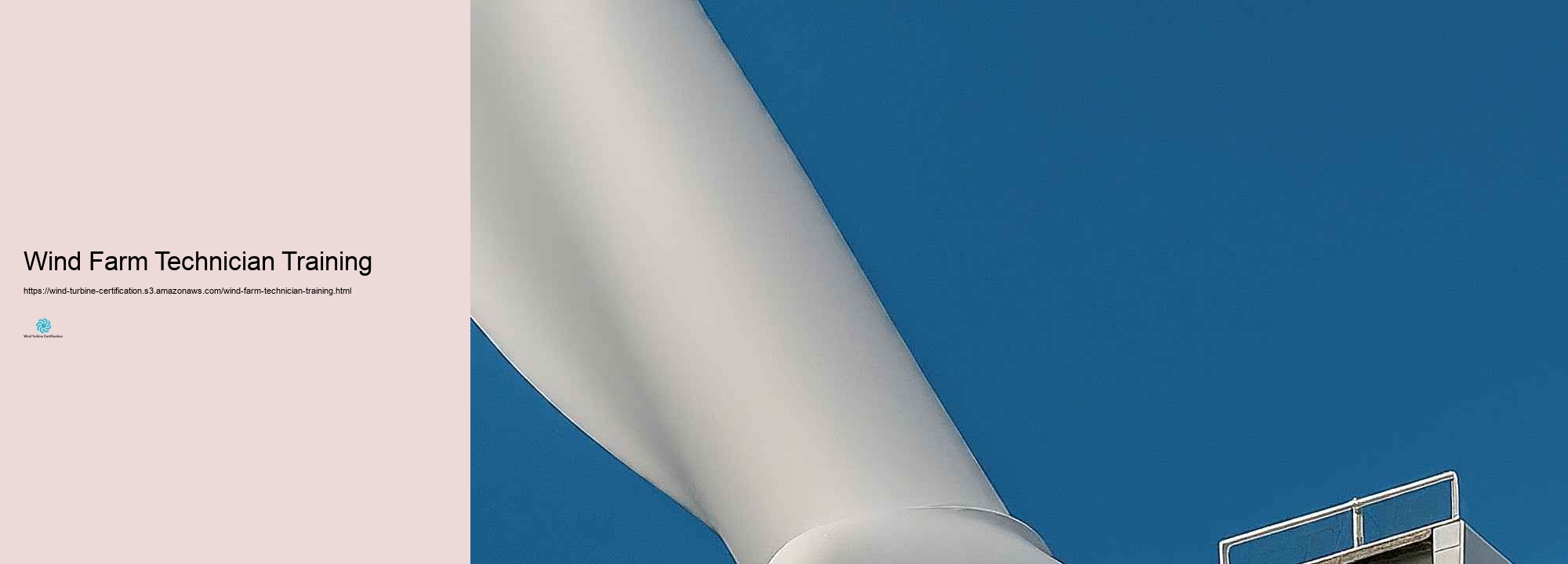
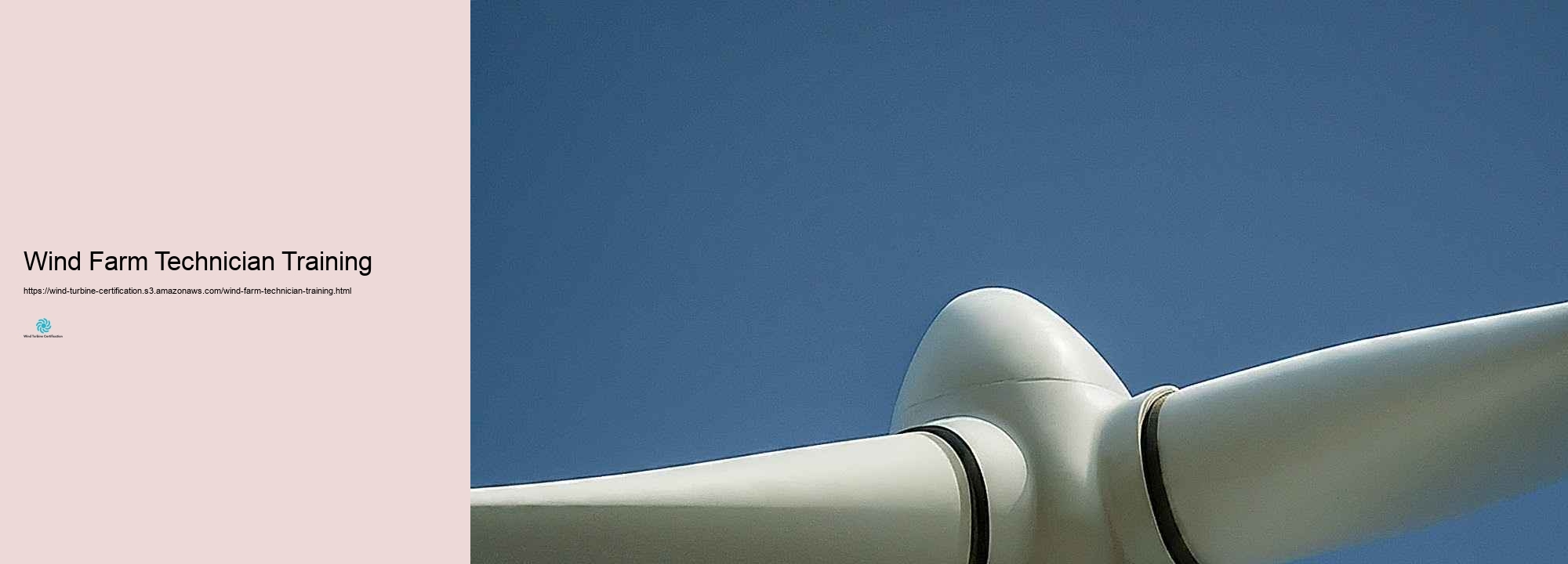
Wind turbine certification is a detailed process that makes certain wind turbines are developed, created, and checked out to fulfill details needs and needs. This certification is essential for producers to show the premium quality, safety and security, and performance of their products. The treatment usually consists of a number of vital steps, each playing a critical duty in the total certification. The initial step in the wind turbine certification treatment is the layout basis exam. This initial stage entails assessing the fundamental presumptions, criteria, and approaches made use of in the turbine'' ' ' s style. Certification bodies like TUV, DNV-GL, or Bureau Veritas take a look at the format basis to ensure it straightens with market requirements such as IEC 61400-22. This activity is essential as it develops the foundation for all succeeding analyses and tests. Abiding by the style basis evaluation, the following action is the style evaluation. In this stage, the certification body confirms that the real design of the wind turbine abides by the authorized layout basis. This includes a comprehensive examination of all technical elements of the turbine, containing architectural components, electrical systems, control systems, and safety and security attributes. The style assessment makes certain that the turbine is theoretically capable of withstanding the expected lots and running conditions throughout its desired life time. The making analysis is the third substantial action in the certification process. This phase focuses on examining the quality control systems and making procedures used to generate the wind turbine. Certification bodies execute evaluations of producing centers and assess top quality administration systems to assurance that the wind generators are being generated frequently and according to the qualified design. This action is crucial for protecting the stability of the turbine from design to manufacturing. Kind screening is possibly one of the most exhausting and visible part of the certification procedure. This activity requires a collection of area and research laboratory examinations to verify the turbine's performance, safety, and integrity. Trick tests consist of power performance measurements, tons dimensions, blade assessments, and acoustic sound analyses. These tests are accomplished on a model of the wind turbine version under certification. The results of these evaluations are essential in confirming the style estimates and guaranteeing that the turbine accomplishes as expected under different operating problems. Aspect certification can be an additional action in the procedure, especially for essential aspects like transmissions, blades, or generators. This includes separate screening and certification of these elements, which can be specifically vital for large or complex turbine designs. Part certification can help improve the basic turbine certification treatment and offer extra warranty of reliability. The last evaluation is the final thought of all previous activities. In this stage, the certification body takes a look at all the info, examination results, and evaluations from the earlier phases. They evaluate whether all demands have actually been fulfilled and if any type of issues established during the procedure have'' been properly resolved. If everything is adequate, the certification body concerns the last kind certificate for the wind turbine style. It's important to note that certification doesn ' ' t end with the issuance of the kind certificate. Numerous certification plans consist of provisions for routine surveillance and re-certification. This sees to it that the made wind turbines continue to satisfy the certified format and high quality requirements in time. Manufacturers may need to take on regular audits and potentially added evaluating to keep their certification. For wind farm jobs, there's generally an added activity of project certification. This includes analyzing just how the certified turbine versions will implement in the specific issues of a designated wind farm website. Project certification considers aspects like community wind conditions, terrain, grid web link demands, and structure designs. Throughout the certification process, clear interaction in between the turbine maker and the certification body is important. Normal conferences and progress testimonials aid guarantee that any kind of issues are identified and addressed quickly, staying clear of hold-ups in the certification timeline. Suppliers ought to be prepared to deal substantial records at each stage of the process. The timeline for wind turbine certification can vary substantially relying on the intricacy of the turbine format, the preparedness of the producer, and the information certification system being abided by. It's not uncommon for the whole procedure to take 12-18 months or possibly a lot longer for new or elaborate styles. Prices related to certification can be significant, including expenses for the certification body, prices of prototype. version making for testing, and costs associated with the various tests and evaluations. Nevertheless, these prices are normally considered a crucial financial investment in the wind power field, as certification is regularly a requirement for market entryway, task financing, and insurance plan. It's worth noting that numerous markets could have specific certification needs. While global requirements like IEC 61400-22 are extensively determined, some nations or areas may have additional or transformed needs. Suppliers aiming for global markets need to be familiar with these versions and may require to get numerous accreditations. The certification procedure also plays a necessary duty in the constant renovation of wind turbine modern innovation. The difficult testing and evaluation often bring about understandings that drive development and improve turbine effectiveness and integrity. This cycle of certification and remodelling has been a vital consider the quickly growth of wind energy technology over the previous years. The wind turbine certification treatment is a considerable, multi-step journey that makes certain wind generators please high needs of protection, effectiveness, and honesty. From first format analysis via to last kind testing and certification, each activity plays a crucial duty in verifying the turbine's capacities.
While the treatment can be taxing and pricey, it deals important guarantee to stakeholders in the wind power market, from manufacturers and designers to capitalists and regulatory authorities. As wind energy continues to play a substantially crucial duty in the worldwide power mix, the extensive certification process remains a structure of the industry development and success.
When it refer to wind turbine specialist qualifications, various reputable business offer programs that are generally identified in the market. These certification bodies play a crucial feature in establishing and preserving demands for wind turbine specialists, ensuring they have the essential capabilities and comprehending to job safely and successfully in this quickly increasing area. Amongst the most recognizable certification bodies is the American Wind Power Organization (AWEA). The AWEA materials a comprehensive Wind Turbine Solution specialist Certification program that is really regarded in the market. This certification covers a variety of subjects, consisting of safety and security treatments, electrical systems, mechanical systems, and hydraulics. The AWEA certification process usually consists of finishing a training course and passing a rigorous test. Many companies in the wind power area favor or demand technicians to hold this certification, making it a useful credential for career development. An extra well-respected certification body is the International Wind Organisation (GWO). While not particularly concentrated on specialist certification, the GWO develops worldwide requirements for security and security training in the wind field. Their Requirement Security Training (BST) program is extensively recognized and generally called for by business. Grid Connection Standards It covers vital skills such as emergency treatment, fire understanding, operating at heights, and sea survival (for overseas wind professionals). Many wind turbine technicians go after GWO accreditations together with their technical credentials to enhance their employability and warranty they accomplish industry protection criteria. The Digital Gadgets Technicians Organization (ETA) International is an extra organization that uses important qualifications for wind turbine service technicians. Their Renewable Energy Combination Professional certification is designed for experts collaborating with countless renewable energy systems, consisting of wind generators. This certification demonstrates a wide understanding of renewable energy modern technologies and their combination right into electrical systems, which can be especially vital for service technicians dealing with grid link and power circulation elements of wind power jobs. The National Center for Construction Education and learning and Study (NCCER) offers a Wind Turbine Upkeep Expert certification program that is getting acknowledgment in the market. This program covers a considerable series of capabilities and experience places details to wind turbine upkeep, consisting of safety, electrical idea, hydraulics, and mechanical systems. The NCCER certification treatment requires both produced analyses and useful performance evaluations, seeing to it that certified specialists have both theoretical proficiency and hands-on abilities. For those wanting to concentrate on the overseas wind area, the International Wind Organisation (GWO) products particular credentials customized to the one-of-a-kind obstacles of working with offshore wind cattle ranches. These consist of innovative rescue training and specialized sea survival programs. While not solely for professionals, these accreditations are typically needed or very valued for functions in offshore wind upkeep. The Job-related Safety and security and Health Administration (OSHA) likewise plays a significant task in wind turbine specialist training and certification. While OSHA doesn't supply a specific wind turbine specialist certification, their safety and security training programs, specifically those relating to operating at elevations and electrical security, are commonly required or suggested for service technicians in the area. Several firms need specialists to hold OSHA certifications along with industry-specific qualifications. In Europe, the European Wind Energy Company (presently WindEurope )has in fact been instrumental in producing requirements and accreditations for the wind power sector. While they put on 't straight offer service technician credentials, their criteria and standards frequently inform the material of training programs and certifications made use of by various other companies in Europe and past. The International Renewable Resource Firm (IRENA) is an additional worldwide business that, while not utilizing straight certifications, deals important sources and standards for renewable resource specialists, including wind turbine professionals. Their operate in systematizing task features and abilities demands throughout the renewable resource industry has in fact influenced certification programs worldwide. It's worth noting that lots of community universities and technical universities supply wind turbine professional training programs that coating in a certification or associate level. While these are not credentials in the normal feeling, they commonly contain prep job for industry-recognized certifications and can be an exceptional pathway right into the area. For those thinking of an extra scholastic method, some universities supply bachelor's degrees in renewable resource or wind energy innovation. These programs typically include chances to make sector credentials as component of the curriculum, providing grads with both scholastic understanding and beneficial qualifications. When picking a certification program, it's important for intending wind turbine professionals to consider the acknowledgment of the certification body within the industry, the information skills and understanding locations covered by the certification, and the demands of prospective employers in their target job market. Lots of professionals locate that a mix of certifications from different bodies deals one of the most considerable credential strategy. It's in addition important to keep in mind that the wind energy field is quickly evolving, with new modern-day technologies and strategies arising routinely. Consequently, a number of certification bodies supply continuing education and learning programs or require regular recertification to make sure that service professionals abilities remain to be existing. This reoccuring learning treatment is a critical facet of an effective profession in wind turbine upkeep. While there is no singular, universally recognized certification body for wind turbine experts, a number of organizations usage extremely concerned programs that can dramatically increase a specialist qualifications and career leads. The American Wind Power Organization, International Wind Organisation, Electronic Devices Service technicians Company, and National Center for Structure And Building Education and learning and Research study are among the leading certification bodies in this area. Hopeful wind turbine service specialists must check out these companies and their certification programs completely, considering their profession goals and the particular
demands of their target firms or regions. By obtaining qualifications from respectable bodies and dedicating to repeating education and learning and capacity development, wind turbine professionals can place themselves for success in this vibrant and increasing sector.
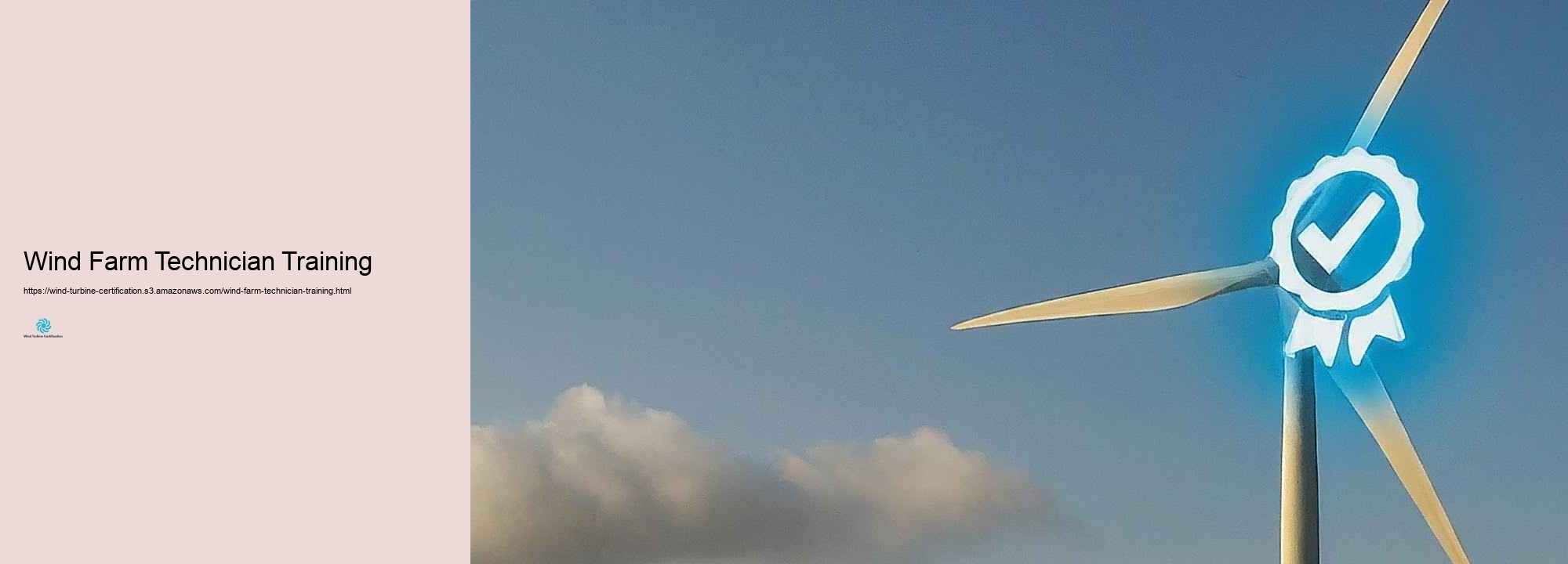
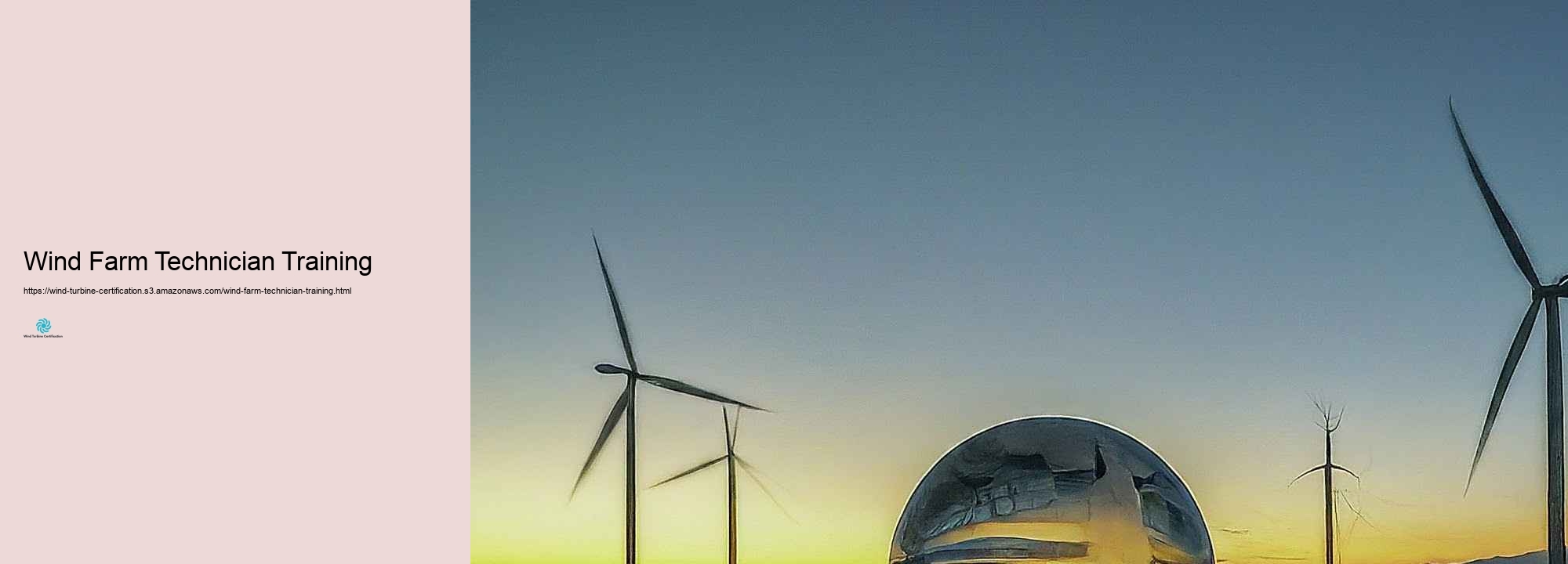
Wind turbine certification plays a vital duty in ensuring the security and security and conformity of wind power systems, adding significantly to the industry growth and public approval. This thorough procedure includes various aspects of wind turbine format, making, and procedure, all targeted at decreasing threats and maximizing efficiency in the challenging environments where these frameworks are released. At its core, wind turbine certification is about verifying that a turbine meets particular requirements and needs established by regulatory bodies and market firms. These demands cover a range of variables, consisting of structural integrity, electrical systems, control mechanisms, and ecological influence. By sticking to these standards, producers and drivers can demonstrate their dedication to safety and integrity, which is needed for obtaining the trust of plutocrats, insurance firms, and the public. Among the primary focuses of wind turbine certification is structural protection. Wind generators are exposed to extreme climate condition and have to take on high winds, disturbance, and sometimes, seismic task. Certification procedures include substantial testing and assessment of the turbine's structural parts, such as the tower, nacelle, and blades. These examinations copy various lots troubles that the turbine might experience during its practical life time, making sure that it can stand up against these pressures without stopping working. Blade certification is a specifically important facet of this treatment.
reliability, and conformity of wind energy systems. By providing a standardized structure for assessing wind turbine technology, certification aids construct confidence amongst stakeholders, decreases threats associated with wind power work, and maintains the continued development and success of the wind power industry. As the globe significantly turns to renewable resource sources to resolve climate change and power security and security problems, the duty of wind turbine certification in guaranteeing the security and security and performance of this modern innovation comes to be ever before much more vital.
The wind power field has actually broadened substantially over the previous couple of years, driven by the increasing need for renewable resource sources. As the sector widens, the relevance of making sure security, dependability, and efficiency of wind turbines has happened vital. International certification bodies play a crucial role in this procedure by establishing and using needs that ensure the top quality and safety of wind generators. This post discovers the vital globally certification bodies associated with the wind power market and their features in assuring compliance with around the world criteria. The Worldwide Wind Organisation (GWO) is a philanthropic market association began by leading wind turbine producers and motorists. GWO's primary objective is to achieve an injury-free work environment in the wind turbine market via the launch of regular worldwide needs for protection training and emergency situation treatments. GWO requirements are developed by the industry, for the industry, guaranteeing that they are helpful and trustworthy in improving safety and supporting labor force advancement. GWO products different training demands, consisting of Criterion Security Training( BST), Standard Technical Training(BTT), and Advanced Rescue Training(ART ). These requirements are made to ensure that wind turbine experts have the essential skills and know-how to do their work safely and successfully. Certification bodies like NSF International Strategic Registrations (NSF-ISR) and ClassNK offer GWO certification to training vendors, making sure that they fulfill the required needs and use appropriate equipment in a suitable establishing. UL Solutions is an added prominent certification body in the wind power sector, identified globally for its competence in safety scientific research. UL Solutions supplies accreditations for overseas drifting wind generators, which are coming to be progressively important as the market relocates towards deeper waters. Their certification services consist of kind certification, aspect certification, and grid code conformity certification. These certifications confirm that wind generators are created, documented, and produced in consistency with information criteria and site troubles, assuring safety and safety, dependability, and performance. UL Solutions furthermore usages turbine life expansion options, helping owners make informed decisions concerning operations, maintenance, and repair to make best use of the worth of running wind belongings. Their involvement in various across the country and around the world boards much more highlights their devotion to developing the future of wind power through much safer and extra risk-free and secure advancement. ClassNK is a trustworthy certification body that offers services based upon the around the world training standards established by GWO. ClassNK deals certification for training companies based upon all GWO training criteria, consisting of BST, BTT, ART, and specialized programs like Blade Repair Training. Licensed training firms should undergo annual safety and security audits and recertification audits every two years to maintain their certification. This strenuous procedure makes sure that training satisfies the highest feasible needs, contributing to a more secure and a lot more experienced workforce in the wind turbine market. Wind Farm Technician Training NSF-ISR is one of the first North American certification bodies to deal GWO certification to training service providers. Their auditors are experts in the wind turbine industry and can anticipate concerns that may influence the audit experience. Certification programs that training carriers accomplish training according to GWO criteria utilizing the required gadgets in a suitable setting. Accredited training providers are noted on the WINDA data source, providing exposure to wind turbine owner drivers, distributors, and market service providers looking for training companies. Worldwide certification bodies play a critical task in guaranteeing conformity with international requirements in the wind power market. They develop and carry out strenuous criteria that cover different elements of wind turbine design, manufacturing, configuration, and operation. These requirements assurance that wind generators are safe, trusted, and perform effectively under various ecological conditions. For instance, kind certification confirms that a wind turbine type is created, recorded, and made in consistency with details demands and website troubles. Element certification puts on considerable architectural, mechanical, and electrical elements of wind generators, validating that they meet appropriate criteria and technical demands. Grid code consistency' certification makes sure that wind generators satisfy nationwide and global grid codes, assisting in their assimilation right into energy systems. One of the primary obligations of worldwide certification bodies is advertising and marketing security and security within the wind turbine sector. By establishing common worldwide standards for safety training and emergency scenario treatments, these bodies assistance in reducing the danger of injuries and casualties among wind turbine specialists. As an instance, GWO's BST consists of components such as first aid, hand-operated handling, fire understanding, working at elevation, and sea survival. These components equip technicians with vital abilities to deal with emergency situations properly. Certification bodies also sustain labor force growth by standardizing entry-level training across the sector. This standardization helps guarantee that brand-new specialists have a continuous level of experience and capabilities, which is vital for preserving high security criteria and functional performance. Several GWO participants have conventional 30 % or much more of their entry-level training, demonstrating the influence of these standards on workforce growth. Worldwide certification bodies aid in market access to for wind turbine producers by giving recognized certifications that are accepted worldwide. UL Solutions certifications, as an example, are acknowledged by regulative bodies worldwide, permitting vendors to gain access to global markets a lot more quickly. This acknowledgment accelerates the rate to market for new wind turbine technologies, contributing to the advancement of the renewable resource sector.Global certification bodies such as GWO, UL Solutions, ClassNK, and NSF-ISR play an important feature in making certain conformity with global requirements in the wind power field. By establishing rigorous requirements for safety and security training, part high quality, and grid mix, these bodies promote safety and safety, honesty, and performance in wind generators. Occupational Safety and Health Administration (OSHA) Their accreditations boost market accessibility for producers while maintaining workforce growth with conventional training programs. As the wind energy market remains to advancement, the duty of these certification bodies will certainly remain to be critical in driving growth and assuring that renewable energy technologies meet the greatest standards of security and performance.
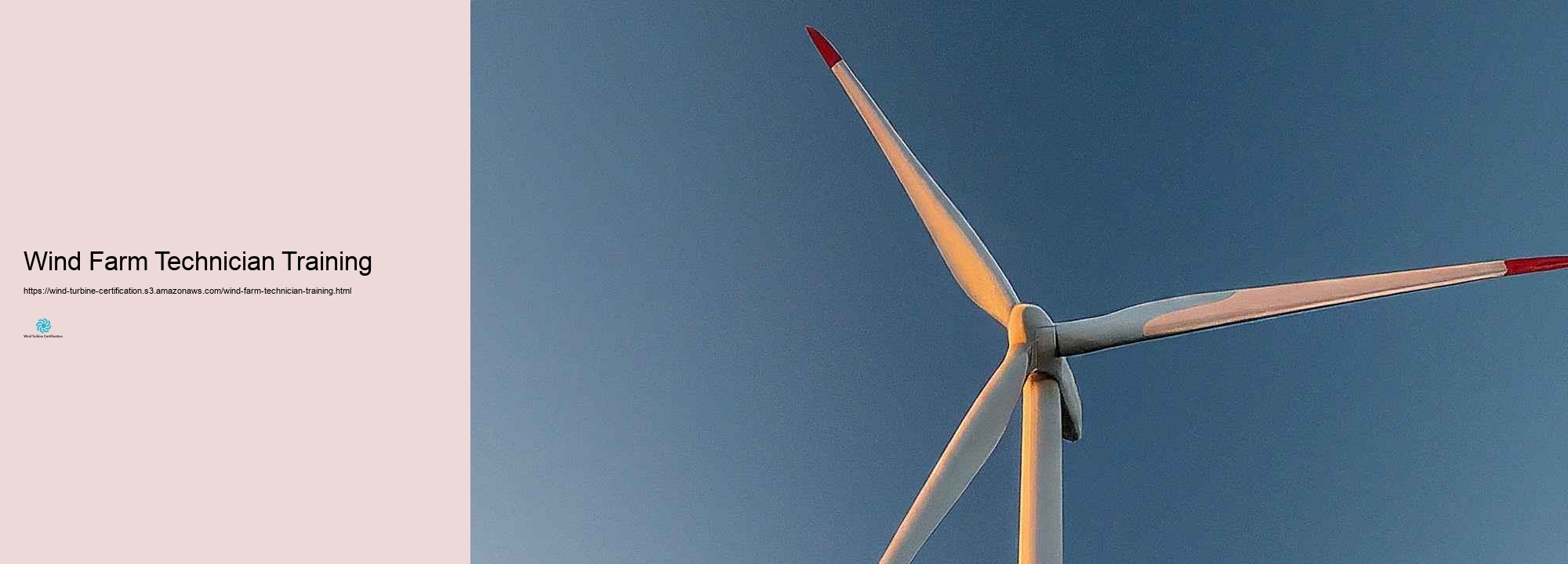
Wind Turbine Certification is a formal recognition that a technician or wind turbine system meets specific industry standards. It ensures safety, efficiency, and compliance with regulations, which is crucial for operating within the renewable energy sector.
Basic requirements include completing relevant training, gaining hands-on experience, and passing exams that test knowledge of wind turbine systems, safety protocols, and operational procedures.
The time required to become certified varies, typically ranging from a few months to over a year, depending on the program and the individual's prior experience.
Organizations such as the Global Wind Organisation (GWO), American Wind Energy Association (AWEA), and International Electrotechnical Commission (IEC) provide Wind Turbine Certification.
Obtaining Wind Turbine Certification enhances your credibility as a professional, opens up job opportunities in the wind energy sector, and ensures you are equipped to meet industry standards and safety requirements.